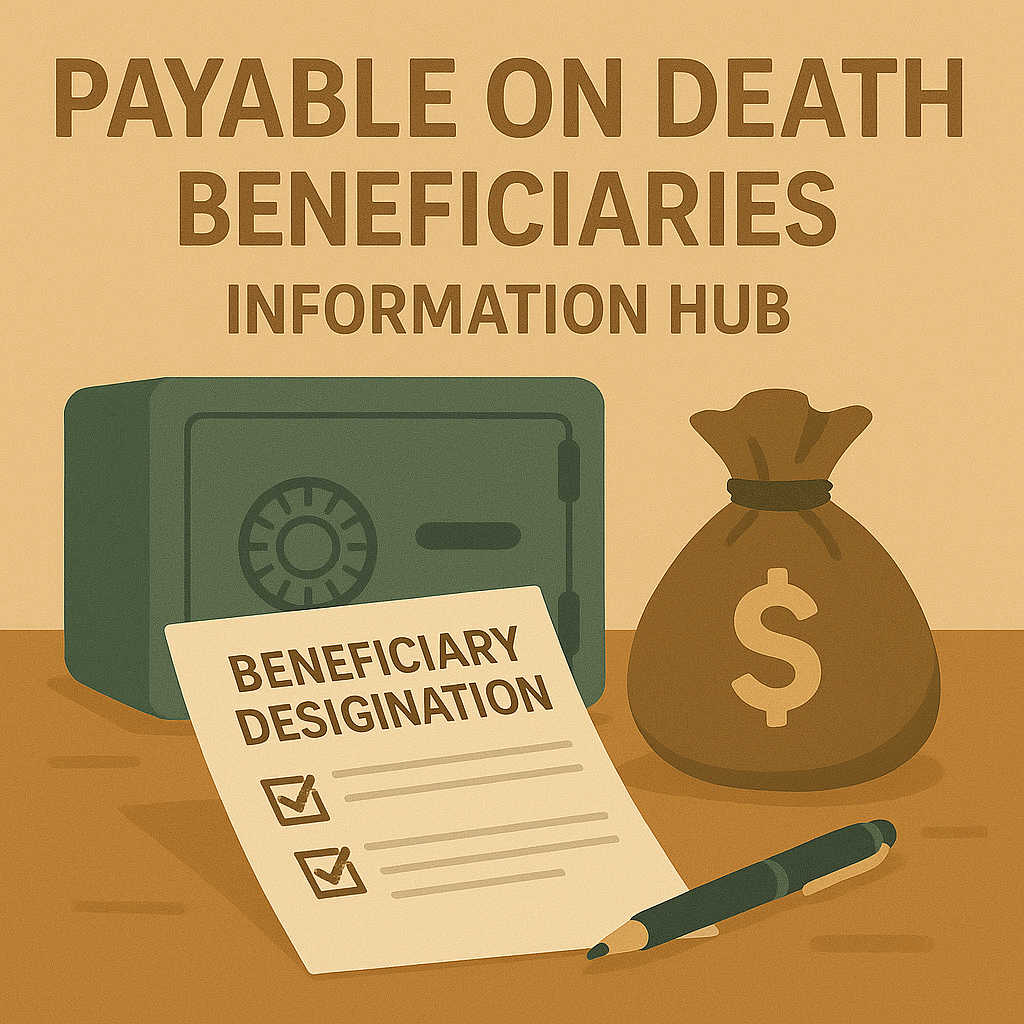Simplify the transfer of your assets with Payable on Death (POD) designations
The Payable On Death (POD) Beneficiaries Hub
This hub provides all the information you need to understand how POD accounts work, their benefits, and how to set them up. Whether you’re looking to avoid probate, ensure your loved ones have quick access to funds, or streamline your estate planning, our resources will guide you every step of the way.

Key Things To Know
Payable on Death (POD) designations allow you to name a beneficiary who will receive the funds in a specific account directly after your death, bypassing probate and ensuring a faster, simpler transfer of assets.
- POD designations apply to specific accounts: These are most commonly used for bank accounts, certificates of deposit (CDs), and certain investment accounts held outside of retirement plans.
- Assets transfer directly to the named beneficiary: Once a death certificate is provided, the funds are released to the person you’ve named, without going through your will or the probate process.
- You retain full control of the account while you’re alive: The beneficiary has no legal access to the funds during your lifetime and cannot make decisions about the account.
- POD is not the same as joint ownership: A joint owner can access the account while you’re alive. A POD beneficiary has no rights until after your death.
- You can update or remove a POD designation at any time: As long as you are mentally competent, you can change your beneficiary by completing a new form with your financial institution.
- Make sure your beneficiary information is accurate and up to date: Misspelled names, outdated contacts, or unclear designations can cause delays or legal disputes.
- POD designations override your will: If your will says one thing and your POD form says another, the POD designation will take precedence for that specific account.
- Multiple beneficiaries can be named: You can divide the account among several people by specifying percentages, but not all banks offer this by default—ask your institution.
- PODs don’t cover everything: Only the designated accounts will transfer this way. Real estate, business interests, personal property, and other assets may need to be handled through a will or trust.
- Adding a POD is typically simple and free: Most banks offer the option as part of their standard account services. It’s an easy way to streamline part of your estate plan with minimal effort.
Resources
Ask Three Questions
Payable on Death (POD) Beneficiary Designations Related Content
Frequently Asked Questions
Disclaimer: The information provided on this website and by Buried in Work is for general informational purposes only and should not be considered legal advice. Please consult with a qualified attorney or subject matter expert for advice specific to your situation.



